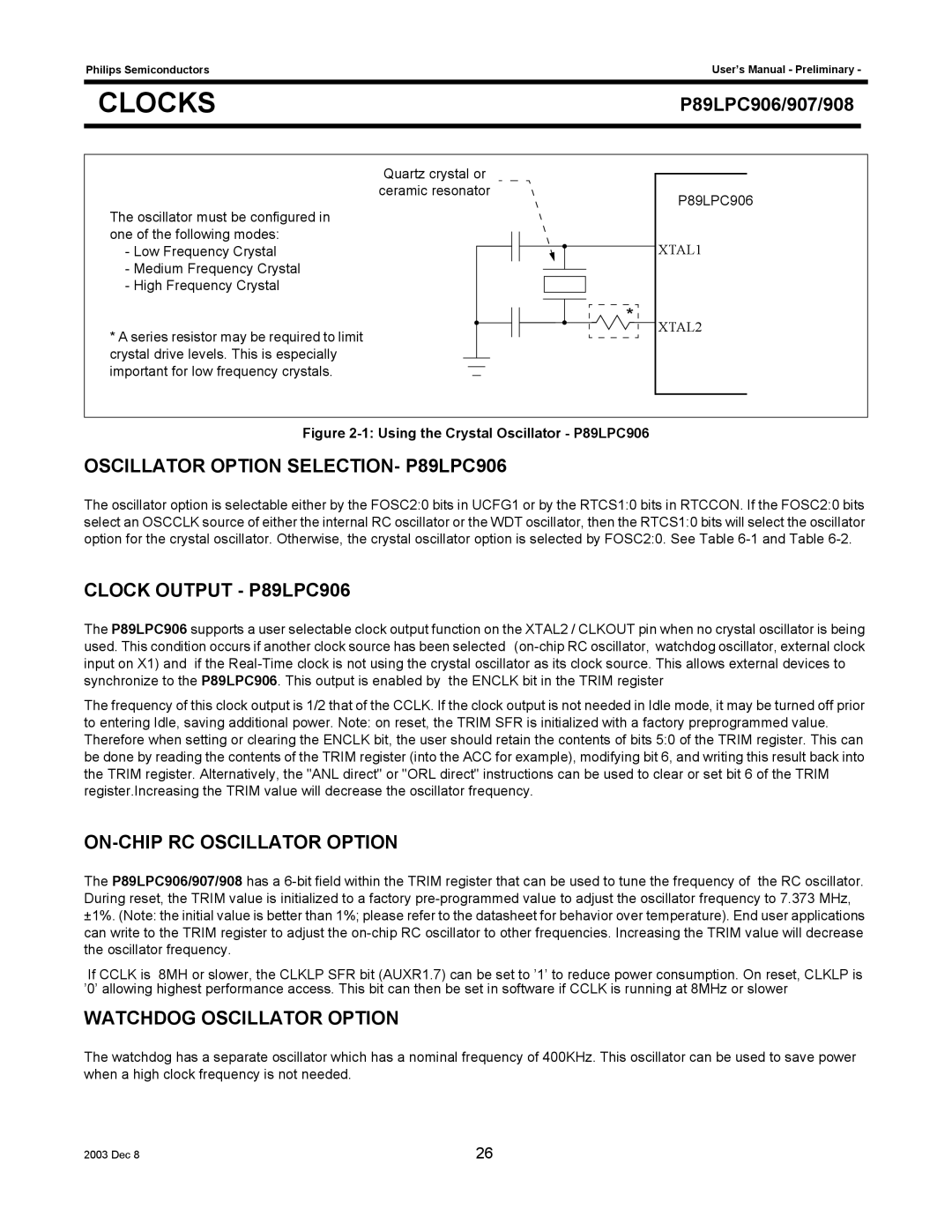
Philips Semiconductors | User’s Manual - Preliminary - | |
|
|
|
CLOCKS | P89LPC906/907/908 |
|
Quartz crystal or ceramic resonator
The oscillator must be configured in one of the following modes:
-Low Frequency Crystal
-Medium Frequency Crystal
-High Frequency Crystal
*A series resistor may be required to limit crystal drive levels. This is especially
important for low frequency crystals.
| P89LPC906 |
| XTAL1 |
* | XTAL2 |
|
Figure 2-1: Using the Crystal Oscillator - P89LPC906
OSCILLATOR OPTION SELECTION- P89LPC906
The oscillator option is selectable either by the FOSC2:0 bits in UCFG1 or by the RTCS1:0 bits in RTCCON. If the FOSC2:0 bits select an OSCCLK source of either the internal RC oscillator or the WDT oscillator, then the RTCS1:0 bits will select the oscillator option for the crystal oscillator. Otherwise, the crystal oscillator option is selected by FOSC2:0. See Table
CLOCK OUTPUT - P89LPC906
The P89LPC906 supports a user selectable clock output function on the XTAL2 / CLKOUT pin when no crystal oscillator is being used. This condition occurs if another clock source has been selected
The frequency of this clock output is 1/2 that of the CCLK. If the clock output is not needed in Idle mode, it may be turned off prior to entering Idle, saving additional power. Note: on reset, the TRIM SFR is initialized with a factory preprogrammed value. Therefore when setting or clearing the ENCLK bit, the user should retain the contents of bits 5:0 of the TRIM register. This can be done by reading the contents of the TRIM register (into the ACC for example), modifying bit 6, and writing this result back into the TRIM register. Alternatively, the "ANL direct" or "ORL direct" instructions can be used to clear or set bit 6 of the TRIM register.Increasing the TRIM value will decrease the oscillator frequency.
ON-CHIP RC OSCILLATOR OPTION
The P89LPC906/907/908 has a
If CCLK is 8MH or slower, the CLKLP SFR bit (AUXR1.7) can be set to ’1’ to reduce power consumption. On reset, CLKLP is ’0’ allowing highest performance access. This bit can then be set in software if CCLK is running at 8MHz or slower
WATCHDOG OSCILLATOR OPTION
The watchdog has a separate oscillator which has a nominal frequency of 400KHz. This oscillator can be used to save power when a high clock frequency is not needed.
2003 Dec 8 | 26 |
